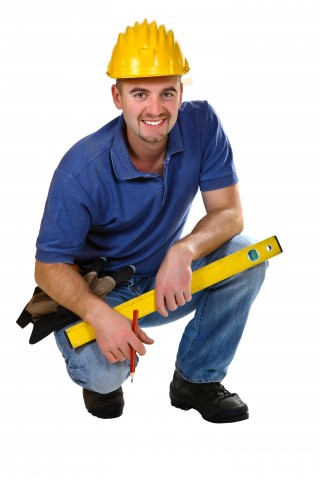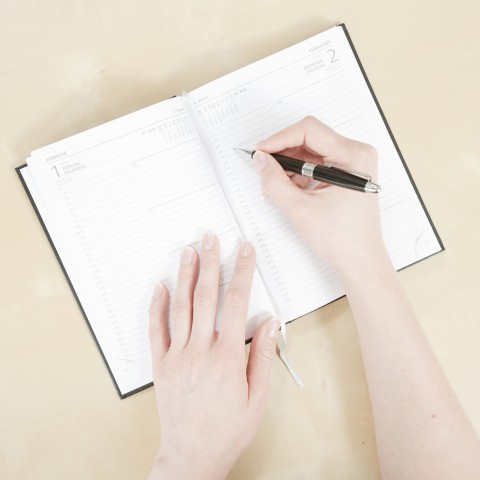
Learning the most frequently used language patterns is one of the easiest ways to start speaking that language. As a Bulgarian language learner, you’ll find it very beneficial to learn the most popular Bulgarian sentence patterns and structures. This knowledge will provide you with many advantages:
- You can skip learning many tedious grammar rules that now seem impossible to learn.
- You can start taking part in Bulgarian conversations and feel more confident in your language skills.
- You’ll be able to quickly figure out which of these ten sentence patterns in Bulgarian to use in any situation.
- You’ll be able to generate hundreds of natural sentences on your own. (And that’s really worth all the effort, right?)
 Table of Contents
Table of Contents
- Becoming a Bulgarian Sentence Builder
- Top Ten Bulgarian Sentence Patterns
- Practice Time: What You Have Learned?
- How BulgarianPod101 Can Help You?
1. Becoming a Bulgarian Sentence Builder
Imagine that you’re a builder, and your task is to build constructions of different sizes and designs on a daily basis. It sounds challenging, right? Well, building sentences in a foreign language can be just as challenging without the right guidance.

Fortunately, BulgarianPod101 is aware of your struggles in correctly building common Bulgarian sentence patterns, and we’re here to teach you how to form sentences in Bulgarian. By learning the following Bulgarian sentence patterns, you’ll become a skillful builder of Bulgarian sentences. In fact, with BulgarianPod101, learning how to do this can be very exciting and intriguing.
In this article, you’ll also learn when to use these ten patterns, how to use them correctly, and how to make friends with Bulgarians. Moreover, you’ll have the chance to practice on-the-go, so take a piece of paper and a pen or pencil right now.
So, what are you waiting for? Put on your builder’s helmet and let’s start!
2. Top 10 Bulgarian Sentence Patterns

To keep things simple, we’ll look at these ten Bulgarian sentence patterns starting with the easiest and ending with the more complicated ones. Study them and try to practice as soon as you get acquainted with each pattern.
Bulgarian Sentence Pattern #1: Linking Two Nouns: A is B
Two Patterns for Presentation
The pattern for this kind of sentence in Bulgarian is great for making introductions or presentations. It allows you to say that one noun is another noun. Let’s see some examples:
- Аз съм учител.
Az sаm uchitel.
“I am a teacher.”
- Иван е лекар.
Ivan e lekar.
“Ivan is a doctor.”
As you can see, this basic pattern is the same as its counterpart in English. Now, let’s see some examples of how it may be used in daily conversations:
- Това е къща.
Tova e kashta.
“This is a house.”
- Онова е магазин.
Onova e magazin.
“That is a shop.”
*TRY IT YOURSELF*
Try to make a simple sentence on your own by translating the following sentences:
This is Anton. He is a student.
Write your answers down, and at the end of this guide you can check if you’ve translated them correctly.
Adding an Adjective
As you can see in the examples below, the position of the adjective in Bulgarian is the same as in English:
- Аз съм строг учител.
Az sаm strog uchitel.
“I am a strict teacher.”
- Иван е добър лекар.
Ivan e dobar lekar.
“Ivan is a good doctor.”
- → If you feel like you don’t know as many Bulgarian adjectives as you would like, you can check out our list of the fifty most common Bulgarian adjectives and try to memorize them.
Adding a Pronoun
- Юлия е моят учител.
Yulia e moyat uchitel.
“Julia is my teacher.”
- Това е нашата къща.
Tova e nashata kashta.
“This is our house.”
Pronoun and an Adjective
To make this pattern complete, let’s add both a pronoun and an adjective to the “A is B” pattern.
- Юлия е моят нов учител.
Yulia e moyat nov uchitel.
“Julia is my new teacher.”
- Иван е наш добър приятел.
Ivan e nash dobar priyatel.
“Ivan is our good friend.”
*TRY IT YOURSELF*
Now, practice what you’ve learned so far by translating the following sentence:
Anton is a good student and my close friend.
If you can cope with this extended sentence, you’ve learned the pattern “A is B.” This means it’s time to move on to the second Bulgarian sentence pattern.
Bulgarian Sentence Pattern #2: Using Adjectives to Describe – A is [Adjective]
The “A is [adjective]” pattern is used for describing someone or something using adjectives. It’s also especially useful when you want to give compliments. Let’s see some Bulgarian language sentences using this pattern below.
Giving compliments using the “A is [adjective]” pattern
- Ти си красива!
Ti si krasiva.
“You are beautiful.”
And to make your compliment to a lady even more kind, let’s add some more words:
- Ти си много красива тази вечер!
Ti si mnogo krasiva tazi vecher.
“You are very beautiful tonight.”
Let’s consider two compliments for a man:
- Ти си много силен!
Ti si mnogo silen.
“You are very strong!”
- Ти си много смел!
Ti si mnogo smel.
“You are very brave.”
- → At BulgarianPod101.com, you can find a list of the top fifteen Bulgarian compliments you can use in your day-to-day interactions.
Using the “A is [adjective]” pattern for description
Now, here’s an example of a simple Bulgarian sentence pattern for giving descriptions. You can confidently use this sentence when someone presents you with a flower.
- Това цвете е прекрасно!
Tova tsvete e prekrasno.
“This flower is wonderful.”

*TRY IT YOURSELF*
It’s time for you to try this pattern on your own. Translate the following sentence into Bulgarian for both sexes:
You are awesome!
Bulgarian Sentence Pattern #3: Expressing “Want” – I Want (to)…
When to avoid using “I want” in Bulgarian
Using Bulgarian phrases like “I want” is considered impolite in the following cases:
You’re in the market and you see a wonderful apple that you wish to buy, but the old lady in front of you takes it first. In that case, it would be rude to say:
- Искам тази ябълка!
Iskam tazi yabalka!
“I want this apple!”
You’re in the theater, but your seat is next to the door. Then, someone enters and leaves the door open. It’s not polite to say:
- Искам да затвориш вратата!
Iskam da zatvorish vratata!
“I want you to close the door!”
You’ll learn how to properly react in both of these situations in Bulgarian Sentence Pattern #6.
How to safely use “I want” in Bulgarian
There are many situations when you can safely use “I want” and “I want to.” Here are some examples:
- Искам да стана лекар!
Iskam da stana lekar.
“I want to become a doctor.”
- Искам да направя другите хора щастливи.
Iskam da napravya drugite hora shtastlivi.
“I want to make other people happy.”
- Искам да говоря на български език.
Iskam da govorya na balgarski ezik.
“I want to speak the Bulgarian language.”
Fortunately, BulgarianPod101 is here to help and make your wish come true!
If your boyfriend calls you and asks: “Do you want to go out with me tonight?” You can just say: “I do.” Here’s how this conversation would sound in Bulgarian:
- Искаш ли да излезеш с мен тази вечер?
Iskash li da izlezesh s men tazi vecher?
“Do you want to go out with me tonight?”
- Искам!
Iskam.
“I do.”

And if you love someone, you can say to him:
- Искам да бъда твоя!
Iskam da bada tvoya!
“I want to be yours!”
*TRY IT YOURSELF*
It’s time for you to try this pattern on your own. Translate the following sentence into Bulgarian:
I want to ask a question.
Bulgarian Sentence Pattern #4: Expressing “Need” – I Need (to)… / I Have to…
Some of the most useful Bulgarian phrases and sentences are those for expressing your needs, and this is especially true when you’re in a foreign country. Here are some simple Bulgarian sentences for expressing the most common needs. You can memorize them, as you never know when you may find yourself in need.
- Имам нужда от помощ.
Imam nuzhda ot pomosht.
“I need help.”
- Имам нужда от химикалка.
Imam nuzhda ot himikalka.
“I need a pen.”
- Трябва да отида до тоалетната.
Tryabva da otida do toaletnata.
“I need to go to the toilet.”
- Трябва да тръгвам.
Tryabva da trаgvam.
“I have to go.”
- Зле ми е. Имам нужда от лекар.
Zle mi e. Imam nuzhda ot lekar.
“I feel bad. I need a doctor.”
- Трябва да науча български език.
Tryabva da naucha balgarski ezik.
“I need to learn the Bulgarian language.”
A hint: To ensure that you know these sentences, just write the Bulgarian translation of the following English sentences without looking at the answers. You can repeat this exercise until you get used to them, and know them perfectly.
I need to learn the Bulgarian language.
I need to go to the toilet.
I need help.
I feel bad. I need a doctor.
I have to go.
I need a pen.
Bulgarian Sentence Pattern #5: Expressing “Like” – I Like (to)…
In Bulgarian, there are three ways to express your likes. Bulgarians use the following words for this: харесвам (haresvam), обичам (obicham), and обожавам (obozhavam). They mean “I like,” “I love,” and “I adore,” respectively. Here are some examples:
харесвам (haresvam), “I like”
- Харесвам този цвят!
Haresvam tozi tsvyat!
“I like this color!”
- Харесва ми да готвя.
Haresva mi da gotvya.
“I like to cook.”
обичам (obicham), “I love”
- Обичам да гледам залеза.
Obicham da gledam zaleza.
“I love watching the sunset.”
- Обичам да се разхождам вечер.
Obicham da se razhozhdam vecher.
“I like to go for a walk in the evening.”
обожавам (obozhavam), “I adore”
- Обожавам този сладкиш!
Obozhavam tozi sladkish!
“I love this cake!”
- Обожавам да ходя на сладкарница!
Obozhavam da hodya na sladkarnitsa!
“I love going to the pastry shop!”
*TRY IT YOURSELF*
It’s time for you to try this pattern on your own. Translate the following sentence into Bulgarian:
I love to drink orange juice.
Bulgarian Sentence Pattern #6: Politely Asking Someone to Do Something – Please…
This is another very important Bulgarian sentence pattern, since you don’t want to sound rude or commanding when you speak to Bulgarians. You can probably remember the sentence: Искам да затвориш вратата! from Bulgarian Sentence Pattern #3: “I want.” How can you ask this more politely?
You have two options:
- Моля, затворете вратата!
Molya, zatvorete vratata!
“Close the door, please!”
- Мога ли да Ви помоля да затворите вратата?
Moga li da Vi pomolya da zatvorite vratata?
“May I ask you to close the door?”
And what about the apple from Bulgarian Sentence Pattern #3?

You can use the following sentence:
Може ли тази ябълка, моля?
Mozhe li tazi yabаlka, molya?
“May I have this apple, please?”
*TRY IT YOURSELF*
Now, imagine that you’re in the market and there’s a list of products that you have to buy. Let’s see how you will ask the seller about each of these products. We’ll do the first two for you, and you have to make the rest by yourself.
Your shopping list contains:
- Един килограм картофи (Edin kilogram kartofi), “One kilogram of potatoes”
- Два хляба (Dva hlyaba), “Two loaves of bread”
- Един килограм моркови (Edin kilogram morkovi), “One kilogram of carrots”
- Един пакет сол (Edin paket sol), “One salt packet”
- Две кисели млека (Dve kiseli mleka), “Two yogurts”
Examples:
- Може ли един килограм картофи, моля?
Mozhe li еdin kilogram kartofi, molya?
“May I have one kilogram of potatoes, please?”
- Може ли два хляба, моля?
Mozhe li dva hlyaba, molya?
“May I have two loaves of bread, please?”
Now, write the next three sentences, using the Bulgarian sentence pattern given above.
- → To enhance your shopping experience at a Bulgarian boutique, please watch the following short video:
Bulgarian Sentence Pattern #7: Drawing Attention – Excuse Me…
There will be situations when you need to ask someone for something, or when someone else asks you a question on the street. To draw someone’s attention the right way, use Извинете (izvinete), which means “excuse me.” Here are a few basic Bulgarian sentences that begin with this phrase:
- Извинете, колко е часът?
Izvinete, kolko e chasat?
“Excuse me, what’s the time?”
- Извинете, може ли да ми помогнете?
Izvinete, mozhe li da mi pomognete?
“Excuse me, can you help me?”
- Извинете, това място свободно ли е?
Izvinete, tova myasto svobodno li e?
“Excuse me, is this seat free?”
- Извинете, къде се намира катедралата?
Izvinete, kade se namira katedralata?
“Excuse me, where is the cathedral?”
- Извинете, това Ваше ли е?
Izvinete, tova Vashe li e?
“Excuse me, is that yours?”
- Извинете, говорите ли английски?
Izvinete, govorite li angliyski?
“Excuse me, do you speak English?”
- → To gain deeper insight on the last question and how to reply to it properly, please watch the following video:
*TRY IT YOURSELF*
Now, let’s combine the patterns # 6 and # 7. Translate these sentences into Bulgarian:
Excuse me, can I close the door?
Excuse me, may I have one loaf of bread?

Bulgarian Sentence Pattern #8: Asking for Information About Something – What…
In this section, we’ll cover how to use the past, present, and future tenses when asking for information. But let’s first start with the most common question: “What is this?”
- Какво е това?
Kakvo e tova?
“What is this?”
Now, let’s ask about the weather today, yesterday, and tomorrow:
- Какво е времето днес?
Kakvo e vremeto dnes?
“What is the weather today?”
- Какво беше времето вчера?
Kakvo beshe vremeto vchera?
“What was the weather yesterday?”
- Какво ще бъде времето утре?
Kakvo shte bade vremeto utre?
“What will the weather be like tomorrow?”
Let’s ask some more questions with “what”:
- Какво обичаш да ядеш?
Kakvo obichash da yadesh?
“What do you like to eat?”
- Какво обичаш да носиш?
Kakvo obichash da nosish?
“What do you like to wear?”
- Какво да направя за теб?
Kakvo da napravya za teb?
“What can I do for you?”
*TRY IT YOURSELF*
Use the weather examples to translate the following three sentences into Bulgarian:
What is your mood today?
What was your mood yesterday?
What will be your mood tomorrow?
Bulgarian Sentence Pattern #9: Asking About Time – When is…?
In your conversations with Bulgarians, you’ll often need to ask questions about time. Here are some examples:
- Кога си роден?
Koga si roden?
“When were you born?”
- Кога е рожденият ти ден?
Koga e rozhdeniyat ti den?
“When is your birthday?”
- Кога ще се видим пак?
Koga shte se vidim pak?
“When will I see you again?”
- Кога е срещата ни?
Koga e sreshtata ni?
“When is our meeting?”
- Кога пристига самолетът?
Koga pristiga samoletаt?
“When is the plane arriving?”
*TRY IT YOURSELF*
Use the last question as a model to translate the following three sentences into Bulgarian:
When is the train arriving?
When is their car arriving?
When is the motorcycle arriving?
Bulgarian Sentence Pattern #10: Asking About Location or Position – Where is…?
The last Bulgarian sentence pattern today is “Where is…” which enables you to ask about the position of any person or object. Here are some useful questions using this pattern that might be of help to you in your conversations with Bulgarians.
- Къде живееш?
Kade zhiveesh?
“Where do you live?”
- Къде е асансьорът?
Kade e asansyorat?
“Where is the elevator?”
- Къде е тоалетната?
Kade e toaletnata?
“Where is the restroom?”
- Къде се намира твоят роден град?
Kade se namira tvoyat roden grad?
“Where is your hometown located?”
- Къде е центърът на града?
Kade e tsentarat na grada?
“Where is the city center?”
*TRY IT YOURSELF*
Use the last question as a model to translate the following three sentences into Bulgarian:
Where is the cathedral?
Where is the park?
Where is the beach?
3. Practice Time: What Have You Learned?

You’ve probably written all of your answers for the *TRY IT YOURSELF* sections now. If you have, you can check the answers at the very end of this article. If not, you can translate them now.
Even if you’ve already written your answers and checked them, it’s good to repeat the exercise now, trying to get them all correct this time.
- This is Anton. He is a student.
- Anton is a good student and my close friend.
- You are awesome! – for both sexes
- I want to ask a question.
- I need to learn the Bulgarian language.
- I need to go to the toilet.
- I need help.
- I feel bad. I need a doctor.
- I have to go.
- I need a pen.
- I love to drink orange juice.
- May I have one kilogram of carrots, please?
- May I have one salt packet, please?
- May I have two yogurts, please?
- Excuse me, can I close the door?
- Excuse me, may I have one loaf of bread?
- What is your mood today?
- What was your mood yesterday?
- What will be your mood tomorrow?
- When is the train arriving?
- When is their car arriving?
- When is the motorcycle arriving?
- Where is the cathedral?
- Where is the park?
- Where is the beach?
As you can see, it’s a long list, so it will be beneficial for you to try to write each sentence at least two times. The more the better! This will help you master all ten sentence patterns in Bulgarian.
4. How BulgarianPod101 Can Help You
This complete guide to the top ten Bulgarian sentence patterns from BulgarianPod101 will help you start speaking freely in your conversations with Bulgarian people. Our goal is to help you advance in this foreign language much more quickly than you can make it on your own.
However, you may find some exercises difficult to complete, or run into issues with Bulgarian grammar or other language-related topics. Do these challenges mean that you have to give up and cease studying the language? Not at all! Winners never stop until they reach their goal.
To help you become a winner, BulgarianPod101 offers you a special feature called MyTeacher. You can find your favorite Bulgarian language expert there, who can help you conquer all the obstacles that now seem insurmountable. Your personal teacher will help you become a language winner!
We believe these sentence patterns have helped you improve your speaking skills, but we always appreciate your feedback. We look forward to hearing from you and will help you out the best we can!
Now, it’s time to check your answers. Don’t worry if not all of them are correct. Just practice, practice, practice…
Answers to Translation Exercises
- This is Anton. He is a student.
Това е Антон. Той е студент.
Tova e Anton. Toy e student.
- Anton is a good student and my close friend.
Антон е добър студент и мой близък приятел.
Anton e dobar student i moy blizak priyatel.
- You are awesome! – for both sexes
Ти си страхотен! – for masculine
Ti si strahoten!
Ти си страхотна! – for feminine
Ti si strahotna!
- I want to ask a question.
Искам да задам въпрос.
Iskam da zadam vapros.
- I need to learn the Bulgarian language.
Трябва да науча български език.
Tryabva da naucha balgarski ezik.
- I need to go to the toilet.
Трябва да отида до тоалетната.
Tryabva da otida do toaletnata.
- I need help.
Трябва ми помощ.
Tryabva mi pomosht.
- I feel bad. I need a doctor.
Зле ми е. Имам нужда от лекар.
Zle mi e. Imam nuzhda ot lekar.
- I have to go.
Трябва да тръгвам.
Tryabva da tragvam.
- I need a pen.
Трябва ми химикалка.
Tryabva mi himikalka.
- I love to drink orange juice.
Обичам да пия портокалов сок.
Obicham da piya portokalov sok.
- May I have one kilogram of carrots, please?
Може ли един килограм моркови, моля?
Mozhe li edin kilogram morkovi, molya?
- May I have one salt packet, please?
Може ли един пакет сол, моля?
Mozhe li edin paket sol, molya?
- May I have two yogurts, please?
Може ли две кисели млека, моля?
Mozhe li dve kiseli mleka, molya?
- Excuse me, can I close the door?
Извинете, може ли да затворя вратата?
Izvinete, mozhe li da zatvorya vratata?
- Excuse me, may I have one loaf of bread?
Извинете, може ли един хляб?
Izvinete, mozhe li edin hlyab?
- What is your mood today?
Какво е настроението ти днес?
Kakvo e nastroenieto ti dnes?
- What was your mood yesterday?
Какво беше настроението ти вчера?
Kakvo beshe nastroenieto ti vchera?
- What will be your mood tomorrow?
Какво ще бъде настроението ти утре?
Kakvo shte bade nastroenieto ti utre?
- When is the train arriving?
Кога пристига влакът?
Koga pristiga vlakat?
- When is their car arriving?
Кога пристига колата им?
Koga pristiga kolata im?
- When is the motorcycle arriving?
Кога пристига моторът?
Koga pristiga motorat?
- Where is the cathedral?
Къде е катедралата?
Kade e katedralata?
- Where is the park?
Къде е паркът?
Kade e parkat?
- Where is the beach?
Къде е плажът?
Kade e plazhat?
Let us know how you did in the comments!










